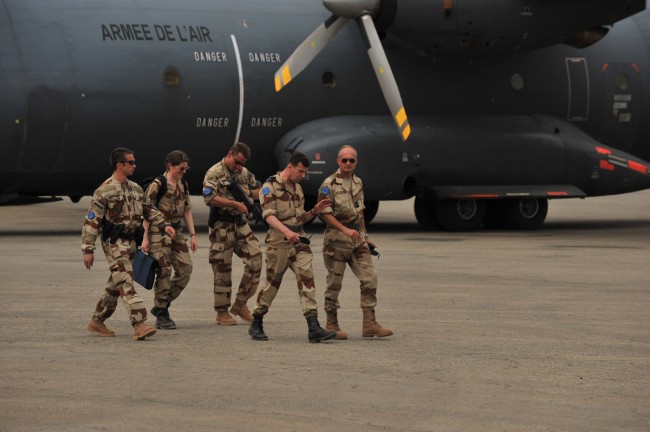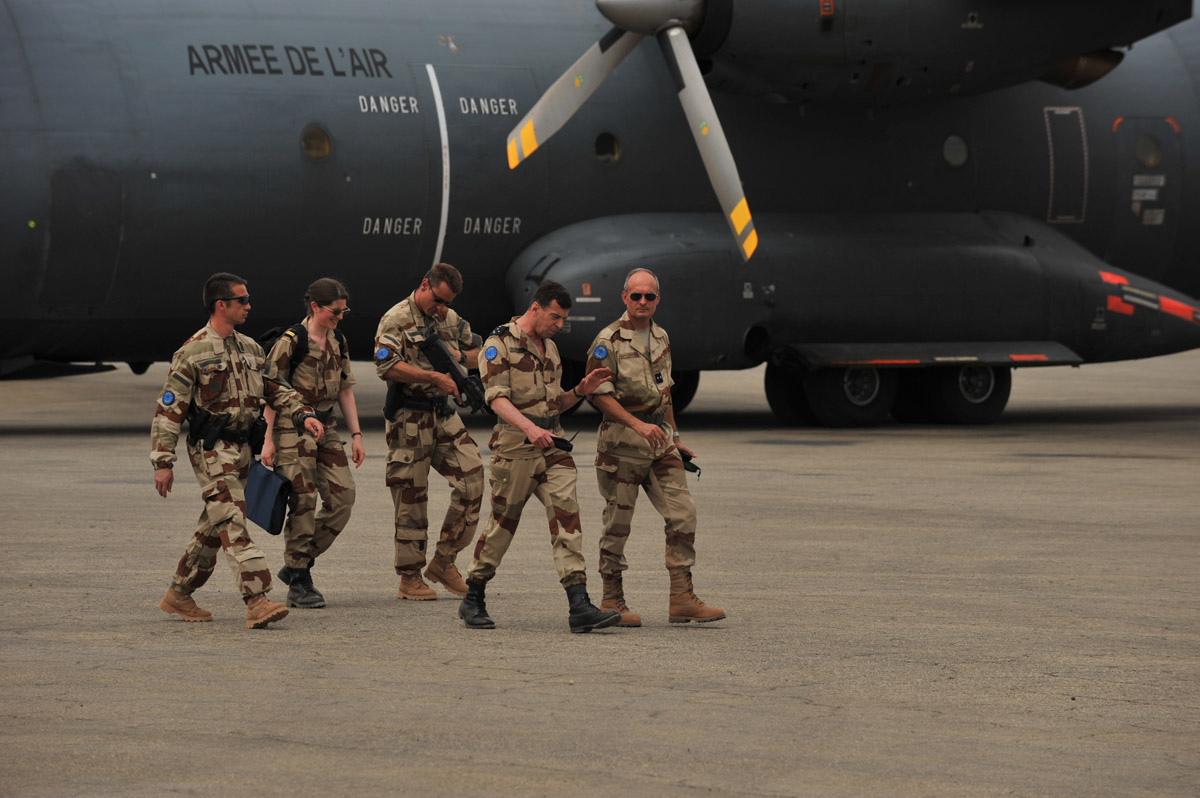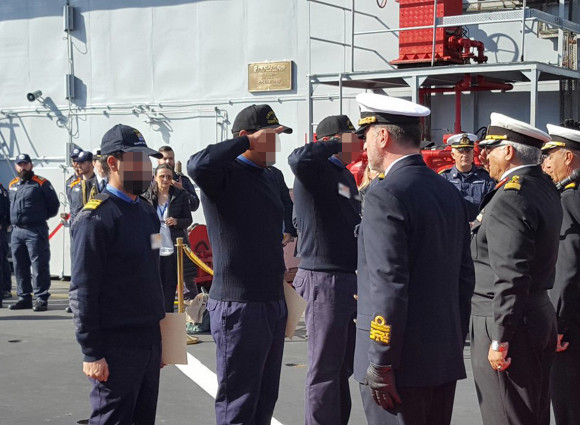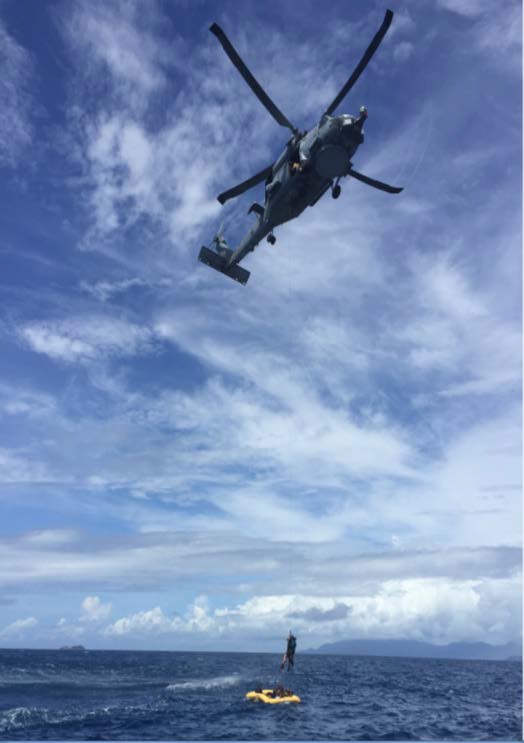Gen. Bentegeat: EUFOR Tchad, the mark of a certain maturity (interview)
(BRUSSELS2) Returning from a stay in Chad, a country he knows well (since he has already been there several times on mission), General Bentegeat - President of the EU Military Committee (the highest politico-military of the EU) - draws up an initial assessment of the situation

How do you assess the situation of Eufor?
I was very pleasantly surprised. When you see all the difficulties that this operation has faced — the difficulty of generating forces, the delay with the rebels… — you are struck by how well things are going. Logistical difficulties are overcome. The local authorities support the deployment, the population and the NGOs welcome our forces with pleasure.
... And a first result?
Even if we can deplore the death of a humanitarian a few days ago, we can see in the areas where elements are already there, around Farchana, with the (French) center battalion already operational, and even in Goz Beïda, where the deployment of the Irish battalion begins, a beginning of securing. The Irish have thus confirmed to me that the number of attacks and acts of banditry have significantly decreased in recent weeks.
The priority now?
It is on the side of the European Commission. The amount of 10 million euros available for work in the villages of south-eastern Chad (from the origin of the displaced persons) must be released. It is indeed crucial that the works start quickly. If we want the displaced people to return home, security is not enough, we must restore the primary infrastructures (wells for example). For us, the success of the mission is at this price.
And on the strength side, aren't there issues to be resolved?
We must complete Eufor with what it lacks, helicopters and tactical planes. Discussions are extremely well advanced with the Russians and the Ukrainians. It remains to resolve certain questions such as financial support, integration into the force, the logistics in place. But I have good hope that these means will be there before the rainy season.
The mission ends in a year. So what do we do afterwards? We continue ?
No. The EUFOR mission will end in a year, not another month. I confirm that. Then you have to invent. This can range from a United Nations force to more specialized missions to assist or reinforce local security forces. It will first be up to the United Nations to decide. The European Union will be able to lend its assistance of course, nothing can be ruled out at this stage. But it won't be at the level of a (military) force, a mission (borders, police, security), why not?
EUFOR Chad is the most difficult mission for the EU, it is said. But have there already been other missions, like Artémis in the Congo?
Artémis was a three-quarter French mission, already launched, which was baptized with the 12-star blue flag afterwards. This EUFOR mission in Chad is totally European, in its composition, in its conception - prepared at European level - and commanded by an Irishman. And I can assure you that General Nash is not playing the role. He plays with all his weight. It's a long mission (1 year), on a very large area of action - and not a city and its surroundings - completely out of the way, where the constraints of difficult terrain are added. Finally, when we see the list of all the incidents in Goz Beïda, or elsewhere, - where thefts, rapes... are legion or at least were - we can clearly see that this is not a walk in the park.
For Defense Europe, is this an important step?
I believe him. In any case, it is the mark of a certain maturity. which is recognized. The American ambassador, met in N'Djamena confided to me that he 'did not believe the European Union capable of that. It's a real feat,' he added. For African countries, it is the demonstration that Europe is not only a purse but that it is capable, if necessary, of acting for their security.
Let's move on to more political questions, the European security strategy must evolve, it is said. Is it necessary in your opinion?
The thinking that is taking place is above all oriented towards an openness to other fields that are of interest to security, such as climate change and energy... In the field of operations, on the other hand, I do not see any necessary change. The European strategy has proven itself. A number of principles, mechanisms and capabilities have been prepared and are now being implemented. It doesn't happen by itself. Because there is a certain saturation of the capacity to act outside the European countries, already strongly committed in Chad, in Afghanistan, in Lebanon...
Aren't there points to review, such as the absence of a single EU operational headquarters and not a plethora of national OHQs?
It's not on the agenda. And frankly, there is no point in discussing it as long as there is no consensus on the command of European operations, there will not be decisive political action by one or more Member States. We are wasting our time. It is better to streamline existing systems as much as possible.
Rationalize, that is to say?
This means ensuring that the OHQs operate as quickly as possible with constantly improved mechanisms, that the (European) HQ is able to plan operations in advance and that the "Berlin +" system (cooperation with the 'NATO) works in optimal conditions.
What about those battlegroups that were never used?
You shouldn't be in too much of a hurry. Those battle groups (Editor's note: strong battle groups of 1500 men each) have just been declared operational, in January 2007. There is no political obstacle. Several countries - the Nordics, the Spaniards - have not hidden their total availability to see them engaged. But quite simply, for fifteen months, there has been no emergency situation (limited in time) which would allow their engagement. But, given international developments, I am convinced that in 2008-2009, we will have the opportunity to do so. And then we can validate this concept.
You are a former French Chief of Staff, as such, how do you see the reintegration of France into NATO. What consequence for the EU?
It is a very good thing. It can only help European construction. If France has a clear position in NATO, it will have its hands all the more free to act in favor of the ESDP (European Security and Defense Policy). France can no longer afford to have one foot in NATO and one foot outside as it does today. This French ambiguity serves its European commitment. Because behind any attempt to strengthen defense Europe, everyone could suspect ulterior motives against NATO.
(Comments collected by Nicolas Gros-Verheyde)



